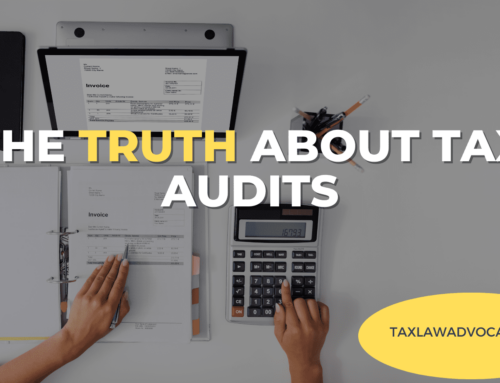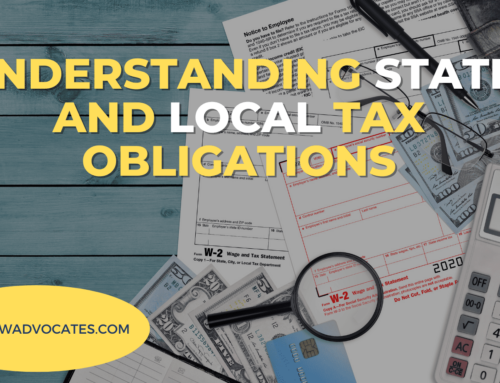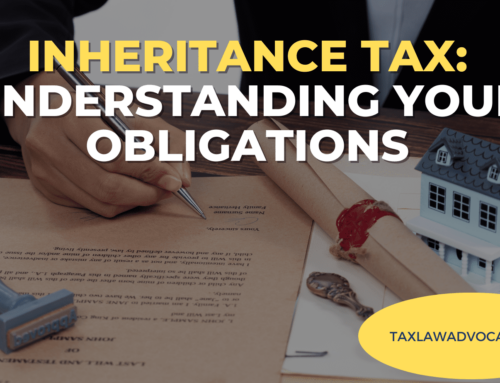Facing a call from the Internal Revenue Service (IRS) notifying you of owed money can be a nerve-wracking experience. In such moments, it’s essential to remain composed and take the right steps to handle the situation effectively. Tax Law Advocates, renowned experts specializing in tax matters, offer invaluable insights into navigating such circumstances. This comprehensive guide presents the top five recommendations from Tax Law Advocates for addressing IRS calls related to owed money. By staying informed and taking strategic actions, you can proactively manage tax challenges while safeguarding your financial well-being.
Maintain Calmness and Active Listening:
Upon receiving an IRS call about owed money, the best advice offered by Tax Law Advocates is to maintain your composure. Although it’s natural to feel anxious, remember that a solution exists for every problem. Approach the conversation with a calm demeanor and pay close attention to the IRS representative’s explanation. Avoid interrupting or arguing; instead, jot down notes to retain essential details for future reference.
Validate the Caller’s Identity:
Before proceeding further, Tax Law Advocates emphasize the significance of verifying the legitimacy of the call. Scammers frequently pose as IRS agents to exploit individuals. Politely request the caller’s full name, badge number, and a callback number. Cross-check this information against the official IRS contact details through their website. If any inconsistencies arise, promptly report the incident to the IRS.
Exercise Caution with Sensitive Information:
Tax Law Advocates emphasize the importance of refraining from sharing sensitive personal or financial details over the phone. Authentic IRS representatives will not demand immediate wire transfers or request credit card information via phone. If the caller exerts pressure for such information, it’s likely a scam. Opt for the IRS’s authorized payment methods and consult a certified tax professional if you’re uncertain about the legitimacy of the call.
Request Written Documentation:
To ensure transparency and better comprehend the owed amount, Tax Law Advocates suggest requesting written documentation from the IRS. This documentation should encompass details about the debt, the reasons behind it, and available payment options. Genuine IRS communication often involves sending official letters, so be cautious if the caller avoids providing written confirmation.
Engage Professional Expertise:
Given the intricate nature of tax matters, Tax Law Advocates strongly recommend seeking professional assistance. Enrolled agents, tax attorneys, or certified public accountants who specialize in IRS interactions can be invaluable allies. They possess the expertise needed to guide you through the process, advocate for your interests, and ensure your rights remain protected. Their insights can aid in exploring potential payment arrangements and negotiating settlements that align with your financial situation.
The expertise offered by Tax Law Advocates extends beyond the immediate steps to take during an IRS call. They stress the significance of a broader perspective on managing your tax obligations to prevent future issues. Consider these supplementary insights as you navigate the complex landscape of taxes:
Stay Proactive with Tax Planning:
Tax Law Advocates emphasize the value of proactive tax planning to avoid owing unexpected amounts to the IRS. Regularly review your financial situation, anticipate potential tax liabilities, and take necessary steps to adjust your withholding or estimated tax payments. By staying ahead of your tax obligations, you can minimize the likelihood of facing challenging calls from the IRS.
Maintain Accurate Records:
Efficient record-keeping is an essential aspect of managing taxes effectively. Tax Law Advocates recommend keeping a well-organized record of financial transactions, deductions, and income sources. These records not only aid in accurate tax filings but also serve as valuable documentation in case of discrepancies or audits.
Explore Tax Resolution Options:
Should you find yourself in a situation where you owe taxes, Tax Law Advocates suggest exploring the various options available for resolving tax debts. These options might include installment agreements, offers in compromise, or negotiating penalty abatements. Engaging with the IRS to find a feasible resolution can alleviate financial stress in the long run.
Stay Informed About Tax Law Changes:
Tax laws are subject to change, and staying informed is crucial. Tax Law Advocates encourage individuals to stay updated with changes in tax regulations that might affect their financial situations. This knowledge empowers you to make informed decisions and take timely action to adapt to evolving tax codes. Find more information about current tax law changes here.
Regularly Consult with Professionals:
The complexity of tax matters necessitates ongoing consultation with tax professionals. Tax Law Advocates advise individuals to establish a relationship with certified tax experts who can provide guidance tailored to your specific circumstances. Regular consultations can help you make strategic financial decisions aligned with your tax goals.
Contact Tax Law Advocates Today
In conclusion, navigating an IRS call regarding owed money necessitates a combination of immediate actions and broader tax management strategies. Tax Law Advocates offer insights into maintaining composure, verifying callers, safeguarding sensitive information, requesting documentation, and seeking professional support. These expert-recommended steps empower you to address the situation effectively.
By integrating these practices into your financial approach, you can enhance your financial well-being and confidently manage your tax obligations.
For comprehensive support in handling tax debt matters and receiving expert guidance, visit Tax Law Advocates’ official website or connect with us directly at 855.612.7777. Your proactive stance, coupled with the insights from Tax Law Advocates, positions you to navigate the intricate world of taxes with confidence and competence.
With the right strategies, knowledge, and professional support, you can ensure that your tax-related experiences are as smooth and manageable as possible.






